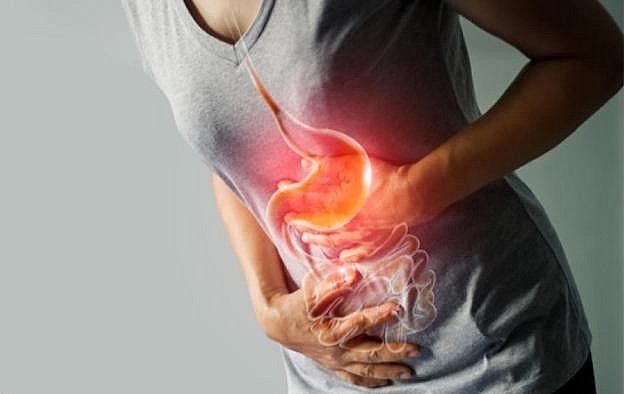Best 6 Home Remedies to Relieve Stomach Pain
♦ 7 Effective Home Remedies for Stomach Pain
 |
| Home Remedies to Relieve Stomach Pain |
Stomach pain is a very common condition. Before resorting to medication, there are some home remedies that can be considered to help relieve gas, bloating, abdominal pain, and nausea without medication.
1.Common causes of stomach pain
There are many potential causes of stomach pain in adults and children, some of the most common being:
• Gas: As gas moves through the digestive tract, it can strain the stomach and intestines, causing sharp pain accompanied by bloating and cramping.
• Constipation: The pain of constipation is often caused by gas buildup or by hard stools that move slowly through the colon (large intestine).
• Food allergies: These allergies, caused by immunoglobulin E (IgE) antibodies, can cause an inflammatory response in the digestive tract, leading to cramps, abdominal pain, nausea, and diarrhea.
• Food Poisoning: Poisoning from bacteria such as E. coli and Salmonella can cause nausea, stomach pain, cramps and vomiting…
• Gastritis: This is an inflammation of the stomach lining caused by many causes such as alcohol, drug use (qsspirin) to infection with H.Pylori bacteria, stress...
• Gastroesophageal reflux disease (GERD) is also known as acid reflux. This is a condition in which stomach acid backs up into the esophagus (food pipe), causing a burning sensation in the chest or throat as well as stomach pain and reflux.
• Indigestion: Usually caused by overeating, eating too quickly, eating fatty or spicy foods, drinking too much caffeine or alcohol, smoking, anxiety, or taking certain medications (such as antibiotics or pain relievers ).
• Irritable bowel syndrome (IBS): This poorly understood condition causes inflammation in the digestive tract, leading to abdominal pain, cramping, bloating, gas, diarrhea, and constipation.
• Dysmenorrhea: One of the hormones released during menstruation is prostaglandin, which causes the lining of the uterus to shed. High levels of prostaglandins in the blood can cause nausea, vomiting, cramps, and diarrhea.
• Peptic ulcer: This is an open sore in the stomach and/or duodenum that causes pain, indigestion, nausea, vomiting, and bloating.
• Stomach flu (also known as viral gastroenteritis): Stomach flu is commonly caused by Rotavirus (in children) and Norovirus in adults.
2.Home Remedies
Ginger
Ginger has been used for centuries to treat stomach upset, nausea, and vomiting.
Ginger is available in extracts, tinctures, lozenges, supplements, and teas, but can also be used in its raw form to relieve digestive symptoms.
Sliced raw ginger can be used to make ginger tea or sucked and chewed fresh peeled ginger slices to help relieve nausea.
Although generally considered safe, ginger can increase your risk of bleeding and easy bruising if you take anticoagulants (blood thinners) such as warfarin. Side effects such as heartburn or diarrhea may occur, but are usually mild
Chamomile Tea
Chamomile tea is a beverage derived from the herb chrysanthemum flower, which may be helpful for treating an upset stomach.
Chamomile has anti-inflammatory properties that can help alleviate conditions like gastritis, gastroenteritis, gastroesophageal reflux disease (GERD) and IBS… (these conditions are characterized by inflammation) .
Chamomile also contains plant-based compounds such as polyphenols, which relax the digestive system, alleviating symptoms such as indigestion, menstrual pain, and vomiting.
Mint
Peppermint contains the active compounds menthol and methyl salicylate, both of which have antispasmodic effects that help soothe stomach upset and cramps.
Peppermint oil diluted in water is sometimes used to treat upset stomachs caused by IBS, stomach flu, and food allergies, but peppermint tea made with dried or fresh herbs has a similar effect.
Peppermint also helps digestive juices (like bile), move easily through the digestive tract, allowing food to break down faster. This would be very helpful for stomach upset symptoms associated with constipation in people with irritable bowel syndrome (IBS-C).
Warm Compress
Applying a warm compress with a hot water bottle or a heating pad helps to relax the stomach muscles, relieve spasms… and soothe an upset stomach. It is also a common treatment for people with menstrual cramps. Studies have shown that it can ease pelvic pain and discomfort at temperatures between 40 degrees Celsius and 45 degrees Celsius.
Heating pads are also helpful for people with IBS by easing cramps and spasms.
If you don't have a heating pad, simply taking a hot shower or soaking in a hot tub can do the same thing.
The BRAT Diet
The BRAT Diet is a therapeutic food plan based on the four foods that make up the acronym "BRAT," namely:
• Banana (Banana)
• Rice (Rice)
• Apple Sauce (Apple)
• Toast (Toast)
These foods are less stressful on the digestive tract but also have a binding effect, helping to reduce loose or watery stools. The BRAT diet is sometimes recommended to relieve symptoms of stomach flu, food poisoning, and Irritable Bowel Syndrome (IBS-D). The BRAT diet is also particularly helpful in the treatment of gastroenteritis in children.
However, this diet is intended only as a short-term solution and is not a typical way of eating. If you follow the BRAT diet for a longer period of time, there is a risk of certain nutrients and calories being deficient.
Apple Cider Vinegar
There is some evidence that apple cider vinegar may help relieve stomach pain associated with chronic gastritis. Apple cider vinegar also contains probiotics that can help normalize the bacterial environment in the stomach and reduce bloating, stomach pain, and reflux caused by an H. pylori infection.
Note, apple cider vinegar needs to be diluted with water to avoid increasing the acid levels in the stomach and making the symptoms of GERD and stomach ulcers worse.
3. When to See a Doctor?
If abdominal pain is accompanied by any of the following symptoms, seek medical attention immediately:
• Nausea and vomiting for several days.
• Bloody stools.
• Shortness of breath.
• Significant abdominal pain (especially to the touch).
• The pain lasts for several days (and gets worse).
• Signs of dehydration (dizziness, decreased urine output).
The above symptoms may signal more serious medical conditions that require medical attention.























